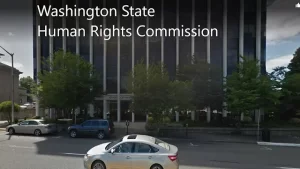
Under Washington State laws, what is considered retaliatory action against state-employee whistleblowers? Here’s my point of view.
(IMPORTANT: This article is for informational purposes only and is based upon my point of view. Due to the rapidly changing nature of the law, we make no warranty or guarantee concerning the accuracy or reliability of the content in this article. No content on this site, regardless of date, should ever be used as a substitute for direct legal advice from your attorney. Please review our Disclaimer | Terms of Use | Privacy Policy before proceeding.)
WA State: What is considered retaliatory action against state-employee whistleblowers?
definition of state-employee whistleblower
Please see our article entitled: “Definition of State Employee Whistleblower.” (NOTE: the link will take the reader to our Williams Law Group Blog — an external website.)
dEFINITION OF RETALIATORY ACTION (or reprisal)
The relevant law concerning retaliation against state-employee whistleblowers is found under RCW 42.40.050*, as follows:
RCW 42.40.050.
Retaliatory action against whistleblower—Remedies.
(1)(a) Any person who is a whistleblower, as defined in RCW 42.40.020*, and who has been subjected to workplace reprisal or retaliatory action is presumed to have established a cause of action for the remedies provided under chapter 49.60* RCW [(i.e., The Washington Law Against Discrimination)].
(b) For the purpose of this section, “reprisal or retaliatory action” means, but is not limited to, any of the following:
(i) Denial of adequate staff to perform duties;
(ii) Frequent staff changes;
(iii) Frequent and undesirable office changes;
(iv) Refusal to assign meaningful work;
(v) Unwarranted and unsubstantiated letters of reprimand or unsatisfactory performance evaluations;
(vi) Demotion;
(vii) Reduction in pay;
(viii) Denial of promotion;
(ix) Suspension;
(x) Dismissal;
(xi) Denial of employment;
(xii) A supervisor or superior behaving in or encouraging coworkers to behave in a hostile manner toward the whistleblower;
(xiii) A change in the physical location of the employee’s workplace or a change in the basic nature of the employee’s job, if either are in opposition to the employee’s expressed wish;
(xiv) Issuance of or attempt to enforce any nondisclosure policy or agreement in a manner inconsistent with prior practice; or
(xv) Any other action that is inconsistent compared to actions taken before the employee engaged in conduct protected by this chapter, or compared to other employees who have not engaged in conduct protected by this chapter.
(2) The agency presumed to have taken retaliatory action under subsection (1) of this section may rebut that presumption by proving by a preponderance of the evidence that there have been a series of documented personnel problems or a single, egregious event, or that the agency action or actions were justified by reasons unrelated to the employee’s status as a whistleblower and that improper motive was not a substantial factor.
(3) Nothing in this section prohibits an agency from making any decision exercising its authority to terminate, suspend, or discipline an employee who engages in workplace reprisal or retaliatory action against a whistleblower. However, the agency also shall implement any order under chapter 49.60* RCW (other than an order of suspension if the agency has terminated the retaliator).
RCW 42.40.050* (emphasis and hyperlinks added).
—–
* (NOTE: the link will take the reader away from this website to the Official Washington State Legislature Website (Revised Code of Washington) — an external governmental website.)
CONCLUSION
Under Washington State laws, state-employee whistleblowers who experience retaliatory actions have various remedies available to them. As defined under RCW 42.40.050, retaliatory actions encompass a wide range of behaviors, including but not limited to denial of adequate staff, unwarranted demotion, and hostile behavior from supervisors or coworkers. However, agencies have the opportunity to rebut these claims by demonstrating documented personnel issues or justifying actions unrelated to whistleblowing.
READ OUR RELATED ARTICLES
» Definition of State Employee Whistleblower**
» Employment-Discrimination Hotlines & Unlawful Retaliation
» The Prima Facie Case: Unlawful Retaliation
» The Washington State Human Rights Commission**
» Top 3 Reasons Unlawful Retaliation Claims Fail
» Unlawful Retaliation: Adverse Employment Action
» Unlawful Retaliation and the Prospective Employer
» Unlawful Retaliation: Statutorily Protected Activity
» Unlawful Retaliation: The Actual-Knowledge Standard
» Unlawful Retaliation: The Causal Link
» Unlawful Retaliation: The Functionally-Similar Test
» WA State Human Rights Commission Complaints
» WA State Human Rights Commission: Functions, Powers, Duties
» WA State Human Rights Commission: Damages for Humiliation & Suffering**
» WSHRC: From Complaint to Conclusion
** (NOTE: This is an external link that will take the reader to our Williams Law Group Blog.)
LEARN MORE
If you would like to learn more, then consider contacting an experienced attorney to discuss your case. This article is not offered as legal advice and will not establish an attorney-client relationship with Law Office of Gregory A. Williams or the author of this article; please refer to our Disclaimer | Terms of Use | Privacy Policy for more information.














